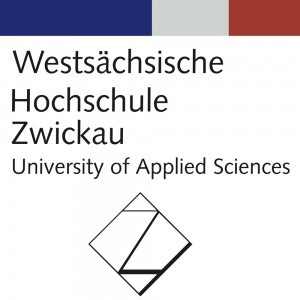Photos of university / #university_of_tsukuba
Bachelor’s Degree in International Business at the University of Tsukuba offers students a comprehensive education designed to prepare them for the globalized economy. The program emphasizes understanding international trade, global markets, cross-cultural communication, and international management strategies. Students will learn to analyze economic and business issues from multiple perspectives, integrating knowledge of economics, marketing, finance, and organizational behavior in an international context. The curriculum combines theoretical foundations with practical skills, including case studies, simulations, and internships, to ensure graduates are well-equipped to navigate and succeed in diverse international business environments. Throughout their studies, students will develop proficiency in foreign languages, enhance intercultural competency, and gain global networking opportunities, positioning them for careers in multinational corporations, international organizations, and global startups. The program fosters critical thinking, problem-solving, and leadership skills necessary for effective decision-making in international settings. With a multidisciplinary approach, students are encouraged to understand the socio-economic and political factors influencing international business and to develop innovative solutions. The University of Tsukuba's vibrant academic community and partnerships with global institutions provide a rich learning environment supported by experienced faculty members with expertise in international trade, economics, and business management. Graduates will receive a Bachelor of Arts or Science degree in International Business, opening doors to a wide range of career opportunities across different sectors worldwide. The program also promotes lifelong learning and adaptability, key traits for success in the ever-changing landscape of international commerce. Students are expected to participate actively in various extracurricular activities, seminars, and international exchange programs to broaden their perspectives and professional networks, ensuring they are fully prepared to contribute to and thrive in the global economy.
Courses at the MBA-IB program are offered in the following four areas of study:
- Applied Information
- International Adaptability
- Business Strategy
- Organizational Management
Applied Information Area
- Business Mathematics (Basic),
- Business Simulation,
- Introductory Data Analysis: Invitation to Quantitative Analysis,
- Data Analysis 1: Introduction to Data Analysis,
- Data Analysis 2: Principle of Quantitative Research,
- Data Analysis 3: Data Mining,
- Operations Management 1: Operations Management (Core),
- Operations Management 2: Decision Analysis,
- Operations Management 3: Risk Analysis,
- Operations Management 4: Project Management,
- Operations Management 6: Systems Design Theory,
- Business Statistics,
- PPDAC based Research Design
International Adaptability Area
- Global Knowledge 1: Practical Aspects of Business Law 1,
- Global Management 1: International Relations and Economics (Core) ,
- Global Management 2: Transcultural Management,
- Global Management 4: ODA Project Management,
- Global Skills 1: Coaching to Grow People,
- Cross Cultural Management 1: Managing Across Boarders,
- Cross Cultural Management 2: The Challenge of Globalization,
- Overseas Study Seminar 1-4,
- Case Study Seminar 1,
- Business Project Writing,
- Business in Emerging Countries,
- Business Negotiation,
- ODA Seminar 1,
- Management Communication,
- Business Studies 2 (Seminar),
- Business Studies 3 (Field Work),
- Applied International Political Economy,
- Business Communication Skills 2,
- Overseas Conference Seminar 2
Business Strategy Area
- Introduction to Economics 1 (Basic),
- Introduction to Economics 2,
- Accounting 1: Basic Accounting Theory (Core),
- Accounting 2: Financial Analysis,
- Business Strategy 1: Business Strategy (Core) ,
- Finance 1: Corporate Finance (Core) ,
- Finance 2: Valuation,
- Finance 3: Derivatives,
- Finance 4: Project Finance,
- Marketing 1: Marketing Management (Core) ,
- Marketing 2: Global Marketing,
- Marketing 3: Branding,
- Marketing 4: Pricing,
- Entrepreneurship 1: Entrepreneurship,
- Finance Seminar 1,
- Finance Seminar 2,
- Finance Seminar 3,
- Managing Consulting Practice
Organizational Management Area
- Business Ethics,
- Cross-cultural Management and Virtual Teams 1,
- Cross-cultural Management and Virtual Teams 2,
- Human Resource Management 1: Human Resource Management (Core) ,
- Human Resource Management 2: Stress Management,
- Organizational Management 1: Organizational Behavior (Core) ,
- Organizational Management 2: Professional Manager,
- Leadership 1: Global Leadership,
- Introduction to Corporate Social Responsibility
- Applicants who have graduated from university (4-year system) or who will graduate by March 2017
- Certificate of Graduation (Expected) & Transcript (English or Japanese)
- Documentary evidence of a change of name (Abstruct of your family register)
- TOEIC or TOEFL
- Certificate of Residence (or Certificate of Entry in the Residence Card)
The International Business program at the University of Tsukuba offers a range of financing options to support students throughout their studies. Tuition fees for this program are structured to be accessible and competitive within Japan, reflecting the university's commitment to international education. For undergraduate students, the annual tuition fee is approximately 1,200,000 Japanese Yen, while graduate students pay around the same amount per year. Additional costs, including registration fees, examination fees, and health insurance, are also applicable and typically total approximately 300,000 Japanese Yen annually.
To assist students with financing their education, the University of Tsukuba provides various scholarship opportunities. These include dedicated scholarships for international students based on academic merit, financial need, or a combination of both. Some scholarships are funded by the Japanese government, such as the MEXT (Ministry of Education, Culture, Sports, Science and Technology) Scholarship, which covers tuition fees, stipend, and sometimes travel expenses. The university also offers its own scholarships, which may cover partial or full tuition fees, and are awarded based on academic achievement or other criteria like extracurricular involvement and leadership qualities.
In addition to scholarships, students have access to financial aid programs such as student loans. The Japan Student Services Organization (JASSO) provides loan schemes that international students can utilize, subject to eligibility criteria. Many students also explore external funding sources, including government grants from their home countries, private foundations, and international organizations dedicated to promoting global education. The university has a dedicated office that provides guidance on the application process for scholarships, grants, and loans, assisting students in navigating the financial support landscape effectively.
Work-study opportunities are also available, allowing students to gain practical experience and earn income to contribute towards their expenses. On-campus part-time jobs, regulated by university policies, are accessible to international students, typically offering flexible hours that accommodate academic schedules. These employment options not only help students financially but also enhance their intercultural and professional skills.
Overall, the financing studies in the International Business program at the University of Tsukuba are designed to be comprehensive, offering various support mechanisms to ensure that talented students from diverse backgrounds can pursue their academic goals without financial hardship. The combination of scholarships, loans, on-campus work opportunities, and external funding sources aims to promote internationalization and accessible education.
International Business at the University of Tsukuba is a comprehensive undergraduate program designed to equip students with the knowledge and skills necessary to succeed in the global marketplace. The program emphasizes understanding international trade, economics, management, and cultural differences, preparing students to work across borders in various industries. Students engage in coursework covering topics such as international business theories, foreign languages, intercultural communication, marketing, finance, and business law. The curriculum integrates practical experiences, including internships and collaborative projects with international companies, to enhance real-world skills. The program also encourages students to develop language proficiency in English and Japanese, fostering bilingual communication abilities essential for international business careers. Additionally, the university offers various seminars, workshops, and exchanges with partner universities worldwide, promoting global networking and cultural exchange. Faculty members are experienced professionals and researchers dedicated to providing high-quality education and mentoring. Graduates of the International Business program are well-prepared for careers in multinational corporations, international organizations, trade agencies, and entrepreneurial ventures. They also possess the critical thinking, problem-solving, and communication skills needed to adapt to fast-changing international markets. The program aims to cultivate global-minded individuals who can navigate complex international environments ethically and effectively. Through a combination of academic rigor and practical experience, students gain a deep understanding of the interconnectedness of global economies and the strategic considerations necessary for success in international business contexts. The university's infrastructure, including modern classrooms, language labs, and business simulation tools, supports an engaging learning environment. Overall, the program offers a solid foundation for students aspiring to make a significant impact in the international business field, leveraging Tsukuba’s reputation for innovative education and international collaboration.










